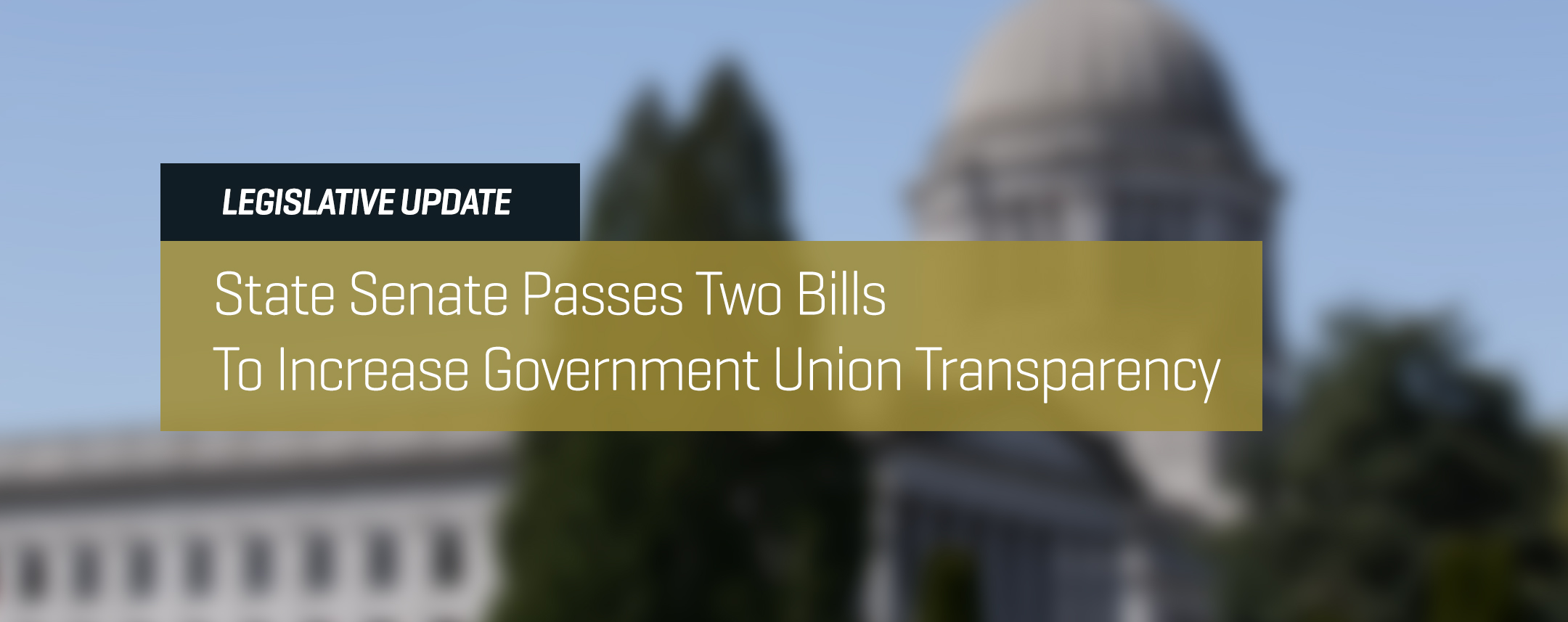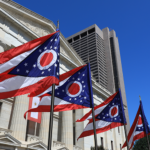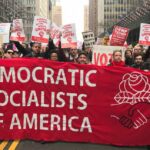In a historic move for Washington, the state Senate this week passed legislation that would bring much-needed transparency to government unions and help protect the interests of both employees and taxpayers in public-sector collective bargaining.
Senate Bill 5226, introduced by Sen. Randi Becker (R-Yelm), passed 26-22. The Freedom Foundation-supported legislation would require unions representing public employees to file basic financial reports with the state Public Employment Relations Commission on an annual basis. The legislation mirrors the federal Labor Management Reporting and Disclosure Act (LMRDA), which has governed private-sector unions since 1959.
If ultimately passed into law, SB 5226 would make government unions more accountable to the public employees they represent. Since state law permits unions the extraordinary privilege of requiring public employees to pay dues as a condition of employment, requiring that unions be financially transparent with their members and the public is a reasonable expectation.
The Washington Federation of State Employees (WFSE) decried the bill’s passage, telling its members its intent is to “take away your bargaining power.”
WFSE also claimed that the bill, “generated little testimony in support, except largely from the Freedom Foundation, a think tank bankrolled by corporate foundations including the Koch Brothers network.”
In reality, five current and former union-represented public employees joined the Freedom Foundation in testifying in favor of the bill before the Commerce and Labor Committee and the Ways and Means Committee. Only union lobbyists were opposed.
On the Senate floor, all but one Republican, Sen. Pam Roach (R-Auburn), voted for the measure. Two Democrats, Sen. Tim Sheldon (D-Potlatch) and Sen. Jim Hargrove (D-Hoquiam), also voted in favor. More information about SB 5226 is available here.
Another bill, SB 5854, introduced by Sen. John Braun (R-Centralia), passed just before the Wednesday cutoff. If signed into law, the legislation would create an online library of all collective bargaining agreements (CBAs) between public entities and labor unions. While these important policy documents are already public records, the Public Employment Relations Commission estimated last year that about 2,000 CBAs exist in Washington. The sheer number of documents makes them difficult to access for research or comparative analysis.
Other states, such as New Hampshire, maintain online databases of collective bargaining agreements.
In addition to the Freedom Foundation, SB 5854 was supported by the Washington State School Directors Association and Allied Daily Newspapers.
The legislation was approved by the Senate 30-19. Four Democrats joined with Republicans in supporting the legislation. All 19 “no” votes came from Democrats.
Other promising union reform legislation didn’t make it past the cutoff. Examples of bills that passed out of the Senate Commerce and Labor Committee but were not brought to the Senate floor for a vote include:
- SB 5671 (Sen. Michael Baumgartner): Would have brought state law into compliance with the U.S. Supreme Court’s Harris v. Quinn decision, which allows workers in groups considered “public employees solely for the purposes of collective bargaining” to opt-out of union dues. More info available here.
- SB 5329 (Sen. John Braun): Would have required that collective bargaining negotiations between public employers and labor unions be open to the public. More info available here.
- SB 5332 (Sen. Braun): Would have required that local minimum wage and paid sick leave laws apply equally to both union and non-union firms. Currently, many local wage and benefit regulations exempt unionized firms, which creates an incentive for non-union employers to unionize as a way to get around the requirements. More info available here.
- SB 5552 (Sen. Mike Padden): Would have clarified and standardized state law governing workers with a religious objection to union membership. It also sought to remove unconstitutional provisions and give workers greater control over choosing a charity to send their dues to in place of the union.
- SB 5045 (Sen. Jan Angel): Would have permitted public employees to call for a vote to get rid of a union security/mandatory dues requirement from their collective bargaining agreement. More info available here.
- SB 5237 (Sen. Mike Hewitt): Would have allowed public employees more time to file the necessary paperwork to change unions or decertify a union. More info available here.
- SB 5602 (Sen. Judy Warnick): Would have prohibited public employers from paying the salaries of union representatives to work on union business. More info available here.
The lack of action on SB 5671, SB 5329 and SB 5332 was somewhat surprising, since these bills were listed on the Majority Coalition Caucus’s website as “key bills” to come out of the Commerce and Labor Committee.
Nevertheless, the 2015 legislative session has already seen a level of attention given to public-sector union reform that is unprecedented in recent history. Unions have taken notice, with the Washington State Labor Council recently denouncing the common-sense collective bargaining reforms being promoted by the “the right-wing Freedom Foundation.”
And the session isn’t over yet.










